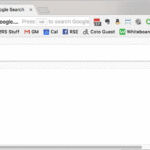Consumers ‘wrongly’ told they do not have PPI
 Image copyright
Image copyright
Getty Images
Banks are being accused of giving wrong information to customers looking to get compensation for mis-sold Payment Protection Insurance (PPI).
The accusation has been made by the Alliance of Claims Companies – a trade body for claims management companies.
It said a number of customers had been incorrectly told by their bank that they never had a PPI policy.
In response, the banks said that information given out was accurate “in most cases”.
Faults ‘across the board’
“It is a massive problem”, said Simon Evans, the chief executive of the Alliance of Claims Companies.
“Consumers are telling claims management companies (CMCs) that they have approached their banks and they have been told they have had no PPI in some cases. Yet when the case has been investigated subsequently by our members we find that is untrue.”
He added that it was not just one lender involved, but was happening “across the board”.
Barclays recently admitted giving wrong information to tens of thousands of its customers who had got claims management companies to check for PPI on their behalf.
The bank blamed an error in its system that handles requests from CMCs.
‘Incorrect information’
Sharon Humby from the Isle of Wight says she was told by NatWest that she had never had PPI – which she found surprising because she knew that it was not true.
She remembered years ago her bank manager had insisted she would need to take out payment protection insurance otherwise she could not have a loan.
Sharon told the BBC’s You & Yours programme: “The bank should have had those details right in front of them and the gentleman that I spoke to should have given me the correct information at the time of my phone call”.
Image copyright
Getty Images
Nearly £33bn has been paid to customers who have complained about PPI
It was only after she hired a claims management company to pursue her claim that it emerged she had been mis-sold PPI on not just one but on four loans.
She received a refund and compensation of just over £3,000.
NatWest says it has made a number of improvements to its PPI processes.
‘Trying to get rid of me’
Graham Abbott from Swansea received just under £1,000 in compensation from the Halifax bank, but he says that initially a member of staff told him he did not have PPI.
“The way they put it to me on the phone was a blatant ‘No you don’t have any’,” he said, “so I felt they were trying to get rid of me rather than help me out in the situation.”
The bank did process his mis-selling claim after he revealed he had already found documents which proved the insurance had been added to a loan without his prior knowledge.
Halifax said it would “continue to identify ways” in which it can improve the service for customers making claims.
Claims deadline
UK Finance, the trade association which represents banks, said “where things do go wrong, banks will work to put them right as soon as possible”, but it said that accurate checks occur “in most cases”.
“Speaking to a lender directly rather than going through a claims management company means that customers will not be charged a fee”, it added.
But Simon Evans says errors happen “too often to be a coincidence” and that if banks “can put consumers off from claiming by telling them in the first instance an answer is ‘no’, they will try and do so”.
The banks’ regulator, the Financial Conduct Authority (FCA), published a report in October stating “consumers are getting fair and consistent outcomes at the earliest stages in the checking and complaints processes”.
Between January 2011 and September 2018, £32.9bn was paid to customers who complained about the way they were sold PPI.
An FCA spokesperson said: “We expect firms to provide timely and accurate responses to consumers who enquire whether they were sold a PPI policy”.
Consumers are being encouraged to check with their lenders to see if they were mis-sold PPI before the deadline for claims on 29 August 2019.



